Trending Now
We have updated our Privacy Policy and Terms of Use for Eurasia Group and its affiliates, including GZERO Media, to clarify the types of data we collect, how we collect it, how we use data and with whom we share data. By using our website you consent to our Terms and Conditions and Privacy Policy, including the transfer of your personal data to the United States from your country of residence, and our use of cookies described in our Cookie Policy.
{{ subpage.title }}
2023's biggest winners and losers in global politics
THE WINNERS
Putin
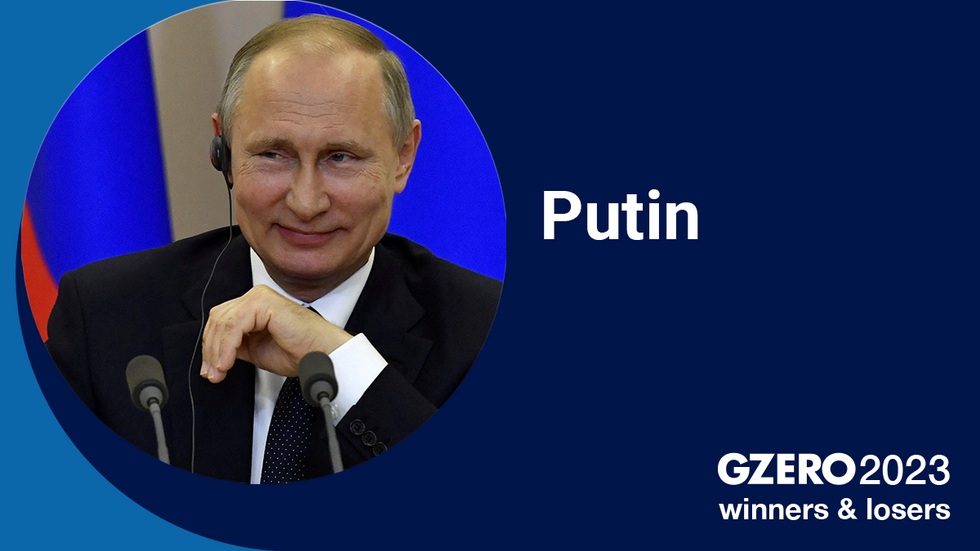
To be fair, things aren’t great for Vladimir Putin – NATO is still stronger, and his economy is weaker than it’d be if he hadn’t invaded Ukraine. But from a low bar, 2023 was a clear winner for the Russian strongman. Ukraine’s vaunted counteroffensive failed to impress, Western attempts to cap the price of Russian oil faltered, and even an insurrection by his warlord-in-chief only seemed to make him stronger. Putin heads into 2024 happily watching the US Congress squabble over further aid for Ukraine, and who knows, next Christmas might just come early for the Kremlin if Donald Trump can win the US election in November.
Trump
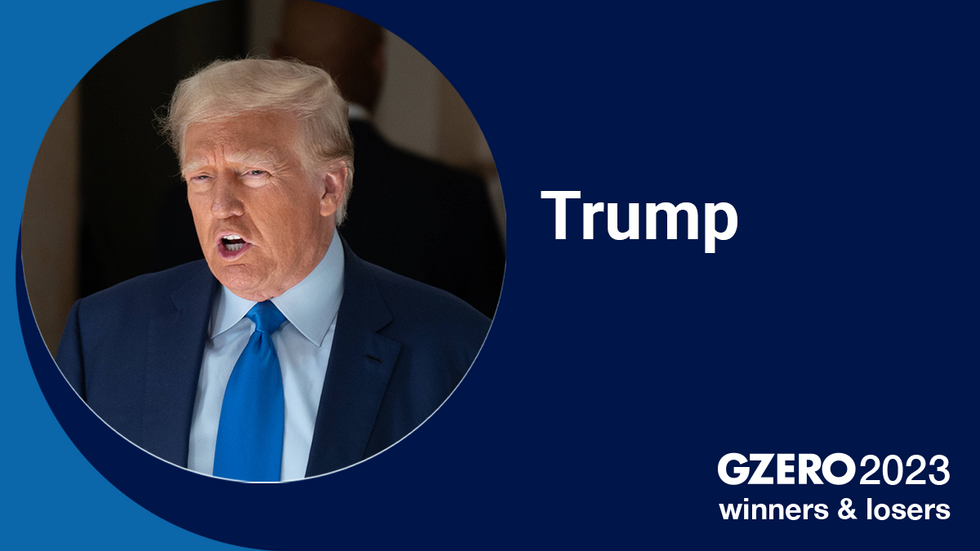
Speaking of which, at the top of this year, the twice-impeached Teflon Don looked like he’d be getting fitted for a prison jumpsuit rather than filing campaign papers. But the bevy of state and federal legal cases against him – some of which were hard for non-lawyers to make sense of – only fired up his base. As a result, he’s not only miles ahead of any GOP challengers for the 2024 nomination, some polls also show him outright leading Joe Biden, who has suffered with voters because of perceptions of his age, inflation, a migration crisis at the southern border, and his controversial handling of the Gaza war.
India
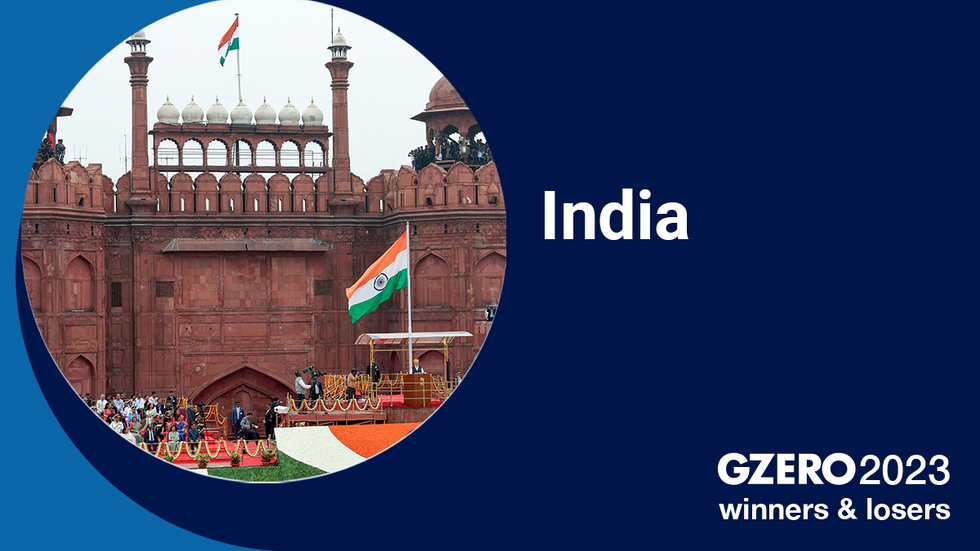
This year, India eclipsed China as the world’s most populous country, defended its title as the fastest-growing major economy, and even landed a spacecraft on the moon. At the same time, PM Narendra Modi used his country’s 2023 presidency of the G20 and his deepening ties with the US to position himself as a vitally important diplomatic bridge-builder between the wealthy G7 countries and the developing nations of the so-called Global South. Popular at home, increasingly influential abroad, and with a flag on the moon to boot, Modi – who faces elections in 2024 – has guided his country to a winner of a year.
Nicolás Maduro
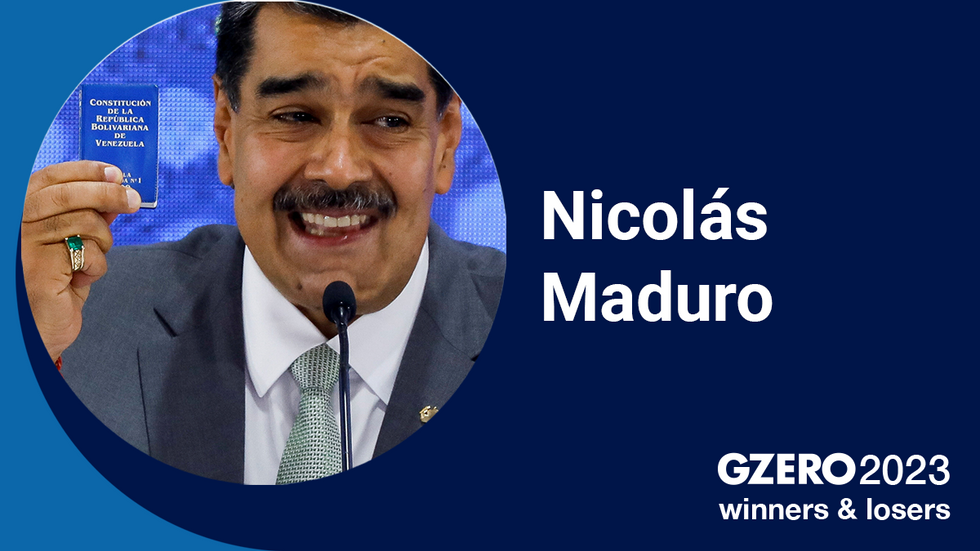
It was a feliz 2023 indeed for the strongman of Caracas. Most of the world quietly stopped supporting his erstwhile rival Juan Guaidó (remember him?), and rising global oil prices forced Washington to rethink its financial stranglehold on Caracas, offering oil sanctions relief in exchange only for some spotty promises that Maduro will hold a free and fair presidential election next year (fat chance.) By the end of 2023, an emboldened Maduro was even feeling frisky enough to threaten to invade his neighbor Guyana.
People willing to play Golf in Saudi Arabia

At first, it seemed inconceivable. Surely the whispers about Saudi Arabia offering golfers hundred-million-dollar contracts to defect to the desert were just fairway gossip, right? But Riyadh made it real when the Saudi-backed upstart LIV Golf absorbed the 107-year-old PGA Golf Tour in June. Critics said the Saudis were just “sportswashing” away an awful human rights record, but supporters said it was time to bust the PGA’s stuffy old monopoly. Meanwhile, the greens look even greener as prize money grows, and even the last-place finishers in LIV tournaments can take home $120,000!
THE LOSERS
AI Cassandras

In March, Elon Musk and a group of artificial intelligence leaders published an open letter warning that AI systems posed “profound risks to society and humanity” and called for a “public and verifiable” six-month pause in “the training of AI systems more powerful than GPT-4.”
It didn’t happen. Increasingly complex and powerful AI systems may indeed pose existential dangers for the human race (alongside their tremendous benefits), but a global pause in any form of technological progress – let alone one this pervasive, powerful, or flat-out entertaining – is impossible to enforce. For the Ancient Greeks, it was Cassandra’s fate to be ignored. But wasn’t it also her destiny to be correct? 2024 will be a huge year for AI.
Benjamin Netanyahu
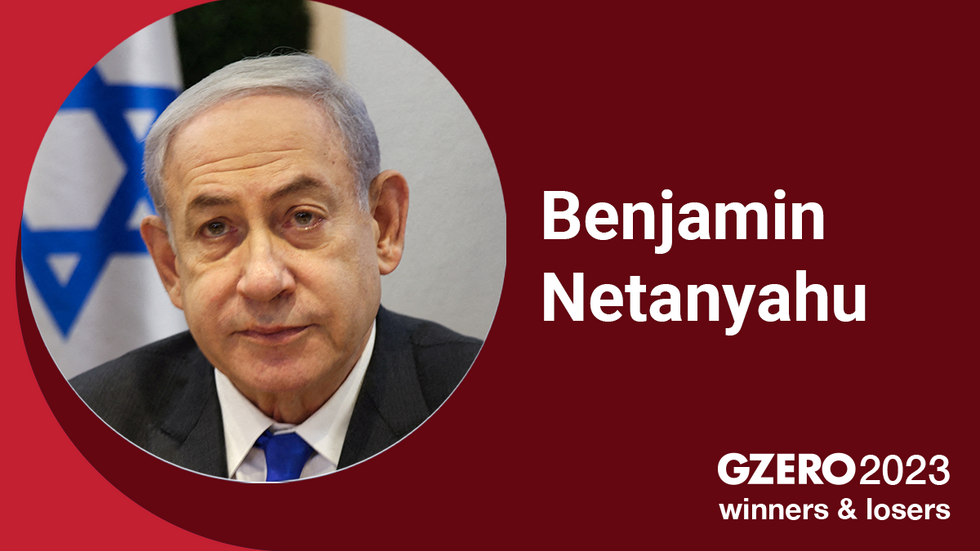
The wily rightwinger returned to power in Israel late 2022 despite his ongoing legal troubles, but it’s been downhill since. All summer, he faced massive protests over his plan to weaken Israel’s courts. Then, the biggest massacre of Jews since the Holocaust occurred on his watch, prompting fierce domestic criticism of the failures of intelligence and strategy that enabled Hamas to attack on Oct. 7. Israeli society broadly supports Bibi’s stated aims of defanging Hamas and bringing home the hostages (two goals that may in fact be in conflict), but a majority of Israelis still want him to resign.
Migrants on the move
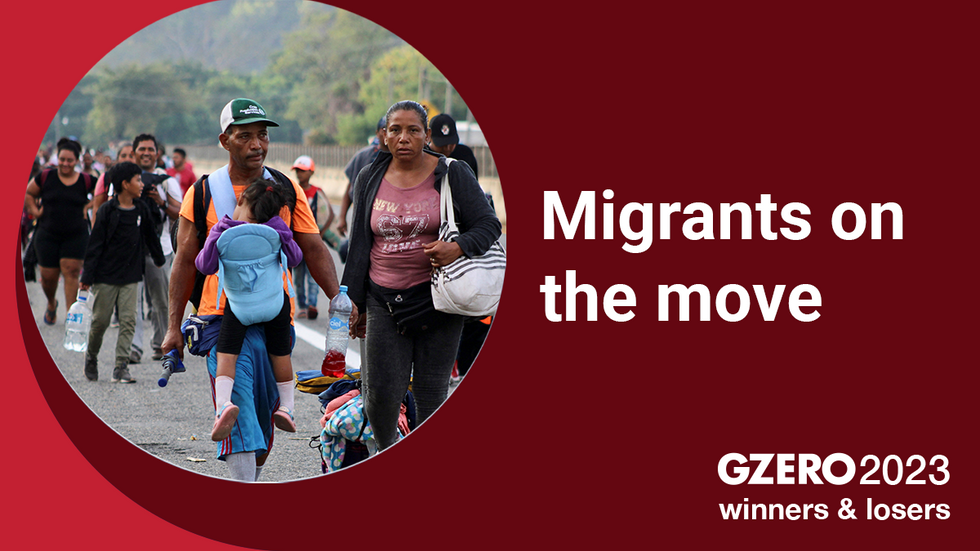
This year the political winds began to shift swiftly against migrants and asylum seekers seeking new lives in the world’s leading economies. In the EU, the number of migrants neared levels not seen since the Syrian refugee crisis in 2016, boosting anti-immigrant politicians and forcing the EU to tighten asylum rules in a long-debated migration policy reform. Meanwhile, in the US, record numbers of undocumented migrants crossed the southern border, empowering Republicans in Congress to hold up funding for Ukraine for tighter border policies. Expect tough talk on migration to play well in the EU Parliament elections next June and the US presidential election in November.
Imran Khan
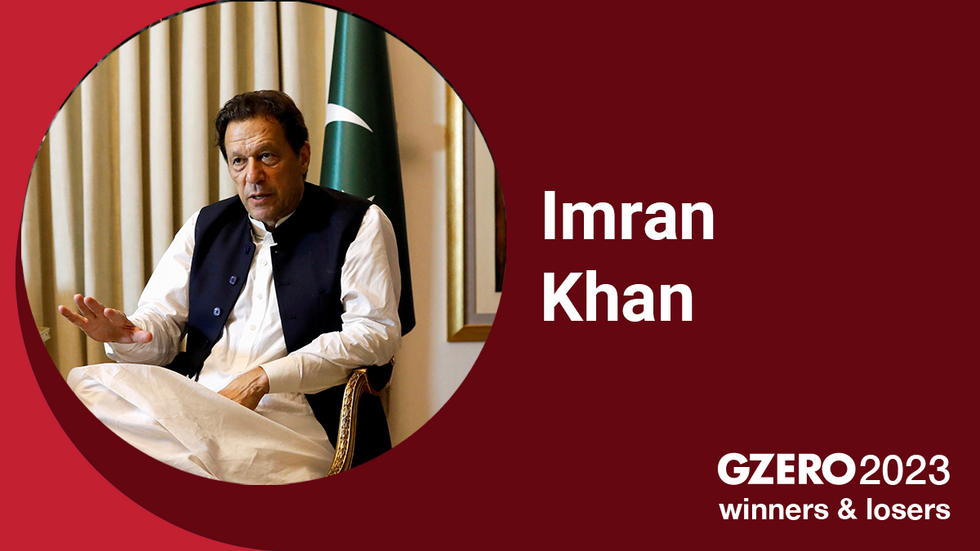
The hugely popular former Pakistani Prime Minister – who was ousted in a no-confidence vote in 2022 – went from looking like he might sweep back to power in elections this year to being locked up in prison, forced to use an AI replica to get his message out. He was imprisoned in August on corruption charges that he and his followers say are bogus, and the elections that were supposed to return him to power were postponed until next year. His legal troubles may keep him off the ballot entirely. Still, he remains an immensely potent force in Pakistani politics, making a 2024 comeback impossible to rule out.
People who opposed coups in Africa
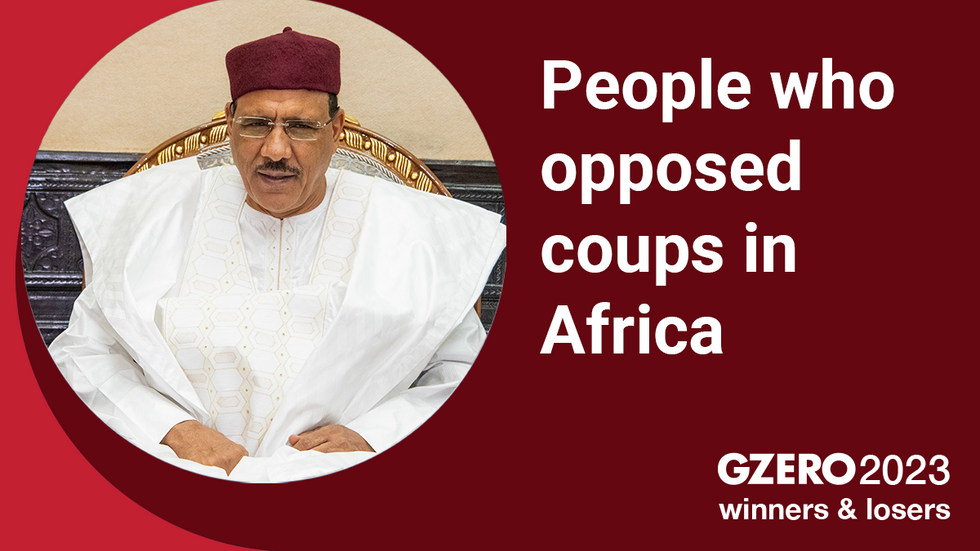
On the heels of coups last year in Mali and Burkina Faso, this year saw governments deposed in both Niger and Gabon. Niger’s democratically-elected government was overthrown by soldiers from the presidential guard in July. Similarly, Gabon military officers seized power in August, unseating the longtime president shortly after he was declared the winner of a contested election. The recent coups come amid a larger trend of increasingly frequent coups in the region – nine over the past three years – which have harmed economic well-being and raised concerns about regional security.
The very biggest losers: Anyone who didn’t subscribe to the GZERO Daily Newsletter

A no-brainer right here. Anyone who wasn’t getting the Daily in 2023 lost out on the best daily dose of global politics that’s out there – delivered right to your inbox with insight, kindness, and humor. The good news is you can still subscribe – sign up here, and you’ll already be a 2024 winner before the year has even begun!
People pose with soldiers as they celebrate in support of the putschists in a street of Libreville, Gabon.
Another day, another coup in Africa
Just hours after being declared the winner of a fraught presidential election that the opposition says was plagued by irregularities, Ali Bongo Ondimba, the president of the central African state of Gabon, was ousted in a military coup – the seventh on the African continent in just two years.
Gen. Brice Clotaire Oligui Nguema, Bongo’s cousin who’s closely linked to the ruling regime, says he is now the president of a transitional government.
Some key background. Bongo, 64, came to power in 2009 after the death of his father, Omar Bongo Ondimba, who ruled the country for more than four decades. The dynasty has been accused of corruption and self-enrichment while many Gabonese are impoverished, with unemployment hovering at nearly 22%.
The oil-rich country is a member of OPEC, the cartel of oil-producing nations, but profits are overwhelmingly reaped by the elite. (Nine members of the Bongo family are currently under investigation in France for embezzlement or corruption.)
Holed up in his residence, Bongo was filmed on Wednesday asking for help, and UN Secretary-General Antonio Guterres called for the restoration of the constitutional order, while the African Union also condemned the coup.
African leaders are indeed worried. This comes just weeks after a coup in the West African state of Niger that’s threatened to further destabilize the entire continent (more on that here). And some analysts say that failure to hold those junta leaders accountable has sent a powerful message to wannabe putschists throughout the continent.The Graphic Truth: Coups ain't what they used to be
Early on Thursday, rebel soldiers announced that they had taken over in a coup in Niger. President Mohamed Bazoum was reportedly detained by members of the presidential guard, but it's not clear whether the rest of the military is on board, so the situation in the Sahel country remains too messy to know for sure who is really in charge. (Bazoum already survived a botched coup after winning reelection in March 2021.)
Successful or not, this is the first — known — coup of the year (notwithstanding Yevgeny Prigozhin's failed mutiny/freak show in Russia). And rather interestingly, it took place in Niger, the West African country we assessed was most at risk of the next power grab in early 2022.
Despite a recent brief resurgence on the continent, coup attempts around the globe have become both less common and less successful. That's partly because the end of the Cold War diminished the superpowers' interest in backing military takeovers against governments they didn't like. Here's a look at the historical record.